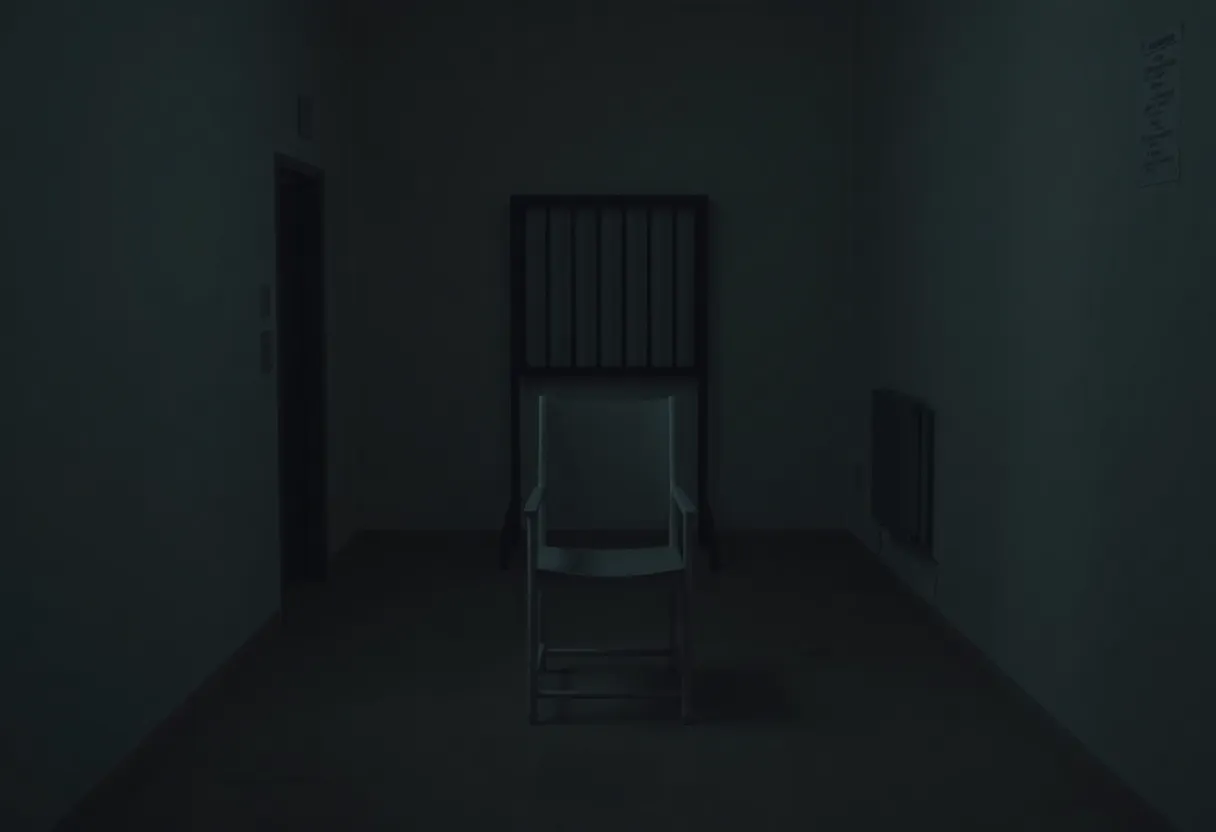

The execution chamber where capital punishment takes place, symbolizing the severe nature of justice.
On April 11, 2025, South Carolina carried out the execution of Mikal Mahdi by firing squad, marking the state’s second use of this method in a short span of time. Mahdi, convicted of the 2004 murder of off-duty officer Capt. James Myers, faced a controversial death penalty process that raises significant moral and ethical questions about capital punishment in the U.S. His case reflects broader societal debates about justice, punishment, and the humane treatment of inmates.
In a significant and controversial moment for the state, Mikal Mahdi, aged 42, was executed by firing squad on April 11, 2025. This event marked the second time in just five weeks that South Carolina used this method for capital punishment. It’s hard not to feel a mixture of emotions surrounding such intense events, as they reflect deep issues within society.
The case of Mikal Mahdi is chilling. Back in 2004, Mahdi was convicted of the brutal murder of Capt. James Myers, a 56-year-old off-duty officer with Orangeburg Public Safety. The crime was horrendous—a calculated ambush where Mahdi shot Myers at least eight times and then went so far as to burn his body. This tragic incident had far-reaching consequences, affecting not just the family of the officer but also the community at large.
The grim aftermath was revealed when Myers’ wife stumbled upon her husband’s body in a shed that had once served as their wedding backdrop—a haunting reminder of love turned to loss. Furthermore, Mahdi’s violent streak didn’t stop there; previous to killing Myers, he murdered a gas station clerk in North Carolina. This pattern of violence adds another layer of complexity to Mahdi’s case and the community’s response.
During the execution, Mahdi was restrained in a metal chair, his head covered with a hood, and a target placed strategically over his heart. In a matter of seconds, three prison staff volunteers stood behind a wall and fired simultaneously at the target. Eyewitness accounts revealed that Mahdi cried out at the moment of impact and visibly flinched during the execution. It’s an image hard to forget, raising questions on the very morality of such practices. He was pronounced dead at 6:05 PM ET, just under four minutes after the shots rang out.
On the day of his execution, Mahdi was given a final meal that many can relate to—components that included ribeye steak, mushroom risotto, broccoli, collard greens, cheesecake, and sweet tea. Interestingly, Mahdi chose firing squad over the more traditional lethal injection method, expressing concerns about pain and suffering. Despite his violent track record and past incidents of assault even while incarcerated, his choice adds another layer to the ongoing debate about humane methods of punishment.
South Carolina’s recent actions are symptomatic of broader national conversations about capital punishment. With challenges related to drug shortages and legal issues surrounding lethal injections, the state has turned to firing squads—a method that supporters argue is a quicker alternative, while critics deem it barbaric and inhumane.
In the days leading up to the execution, the South Carolina Supreme Court denied Mahdi’s final appeal. His attorneys fought hard, claiming that his original defense team was inadequate, managing to present their case in less than 30 minutes. Furthermore, Mahdi’s violent history was exacerbated by a tumultuous childhood filled with abuse and neglect, which, while it doesn’t excuse his actions, offers insight into the psychological struggles he faced.
With Mahdi’s execution, the number of inmates remaining on South Carolina’s death row dwindles. Since the resumption of executions in September 2024, the state has carried out five executions, and Mahdi is noted as the 12th execution in the U.S. this year. While the state aims to continue its execution schedule at a rate of every six weeks, the moral and ethical debates surrounding these practices are as heated as ever.
As South Carolina confronts tough questions about justice and punishment, the rising tide of discussions surrounding the death penalty continues to shape the landscape of societal norms and legal standards. We all find ourselves at a crossroads between justice and humanity.
News Summary The South Carolina General Assembly has passed two contentious bills aimed at dismantling…
News Summary Residents of Myrtle Beach confront a dire situation as over 170 wildfires rage…
News Summary Hendrick Automotive Group has achieved the top ranking on the BNC 125 list,…
News Summary Rock Hill welcomed over 300 participants to Winthrop University’s annual Diversity and Inclusion…
News Summary As of March 6, 2025, wildfires are rampant in North and South Carolina,…
News Summary Over the Easter weekend, severe storms ravaged Oklahoma, Texas, and Missouri, resulting in…